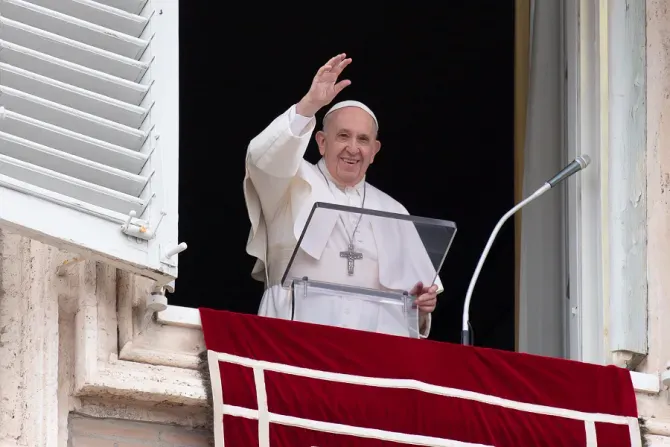The Bratislava Forum said the event “facilitates the free exchange of ideas and provides a meeting place for stakeholders from all sectors of society to actively shape the future we want for ourselves and generations to come.” The theme of this year’s forum, “Rebuilding the World Back Better,” echoes the political rhetoric of many countries in anticipation of an end to the coronavirus epidemic.
Pope Francis, delivering a video message to the meeting, invoked the three principles of “Look, Judge, Act.” He said the pandemic “forces us to confront a series of serious socio-economic, ecological and political issues, all interrelated.”
Citing his Christmas 2020 address to the Roman Curia, he challenged attendees “to transform the time of trial into a time of choice.” A crisis “forces you to choose, for good or for bad,” and people do not emerge from a crisis the same: “either you come out better or you come out worse. But never the same.”
“Let's take advantage of this time to take steps forward. The crisis that has hit everyone reminds us that no one is saved alone,” he said. “The crisis opens the way for us to a future that recognizes the true equality of every human being: not an abstract equality, but a concrete one, which offers to individuals and to peoples fair and real opportunities for development.”
The pope said he sees “a world that has been deceived by an illusory sense of security based on the hunger for gain.” There is “a model of economic and social life, characterized by so many inequalities and selfishness, in which a small minority of the world population owns the majority of assets, often not hesitating to exploit people and resources.”
He lamented “a lifestyle that doesn't care enough for the environment,” saying that people are used to “consuming and destroying without restraint what belongs to everyone and must be safeguarded with respect.” This creates an “ecological debt” that will be borne “above all by the poor and future generations.”
“Those who do not act waste the opportunities offered by the crisis,” he continued. Social injustices and marginalization require a development model that puts at its center “every man and the whole man… as the fundamental pillar to respect and protect.” He emphasized the need to adopt a methodology that includes “the ethics of solidarity” and “political charity.”
Action requires an overarching vision of hope, “a vision like that of the biblical prophet Isaiah, who saw swords turning into ploughshares, spears into pruning hooks,” said Pope Francis.
“To act for the development of all people is to carry out a work of conversion,” he added, praising “decisions that convert death into life, weapons into food.” The pope also called for “an ecological conversion,” since an overarching vision sees creation as a “common home” and “urgently requires action to protect it.”
The pope said that he hoped that attendees would be “animated by the hope that comes from God” and that their discussions would “contribute to a model of recovery capable of generating more inclusive and sustainable solutions; a development model based on both peaceful coexistence between peoples and harmony with creation.”








